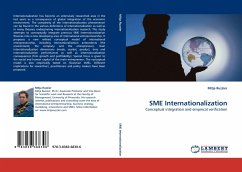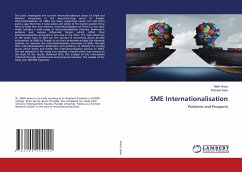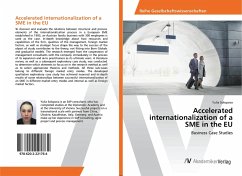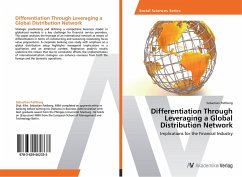
SME Internationalization
Conceptual integration and empirical verification
Versandkostenfrei!
Versandfertig in 6-10 Tagen
52,99 €
inkl. MwSt.

PAYBACK Punkte
26 °P sammeln!
Internationalization has become an extensively researched area in the last years as a consequence of global integration of the economic environment. The complexity of the internationalization phenomenon can be found in the various definitions of internationalization as well as in many theories underpinning internationalization research. This study attempts to conceptually integrate previous SME internationalization theories into a new developing area of international entrepreneurship. It proposes a new refined conceptual model of international entrepreneurship, including internationalization a...
Internationalization has become an extensively researched area in the last years as a consequence of global integration of the economic environment. The complexity of the internationalization phenomenon can be found in the various definitions of internationalization as well as in many theories underpinning internationalization research. This study attempts to conceptually integrate previous SME internationalization theories into a new developing area of international entrepreneurship. It proposes a new refined conceptual model of international entrepreneurship, including internationalization antecedents (the environment, the company and the entrepreneur), main internationalization dimensions (mode, market, product, time and internationalization performance) as well as internationalization consequences (firm growth and profitability). Special focus is given to the social and human capital of the main entrepreneur. The conceptual model is also empirically tested on Slovenian SMEs. Different implications for researchers, practitioners and policy makers have been proposed.












